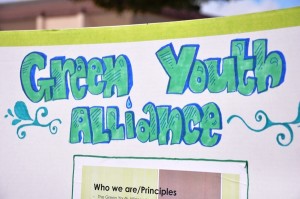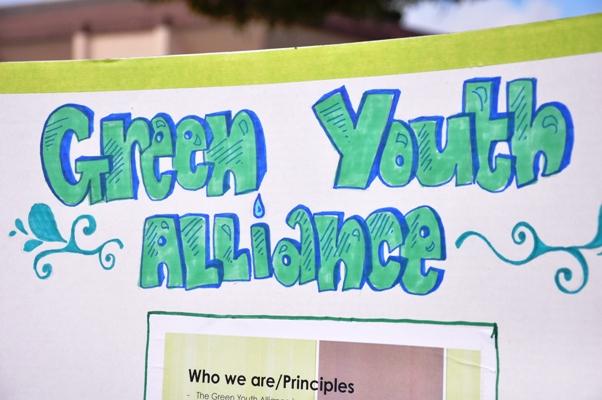What do politics, the environment and volunteering have in common?
They are all parts of a new club on campus — Green Youth Alliance.
GYA is a worldwide organization that is closely linked to the Sierra Club, a famous environmental organization founded by conservationist John Muir. In addition to conducting field work such as investigating environmental damage on nature walks and participating in creek clean ups, GYA deals with various aspects of environmental volunteering. The purpose of the club, according to the officers, is to draft bills and legislation which address current environmental issues. These bills and legislation are later presented to a board of GYA panelists who are the founders of the GYA California chapter.

“Unlike most environmental clubs, we do not [volunteer] completely through service, we are focused more on the politics,” founder and senior Timothy Namkung said.
GYA is supported by State Superintendent of Schools Jack O’Connell and has been offering chapter divisions ever since the early 2000s.
Namkung learned of the organization in January of 2011, through the mentor and director of the GYA California chapter Dr. Sue Chow.
“At first, I thought it would be cool to start this club for college credits,” Namkung said. “ But then when [Chow] started to explain about the ongoing issues such as global warming, I thought, ‘Forget colleges, there won’t be a world to have colleges in if [such issues] continue.’”
After forming a chapter on campus, Namkung offered officer positions to his friends, seniors Vedang Uttarwar, Ajay Mandlekar, Jay Boinapalli, Saif Adeeb and junior William Zhang, who all accepted.
The officers’ first case, presented at an FBLA competition in March of 2011, was on the issue of the harmful affects of plastic bags. They proposed that plastic bags should be eliminated in Cupertino. The legislation which banned plastic bags was passed in cities such as Santa Clara, but has yet to be passed in Cupertino.
However, the officers remain optimistic, believing that they will make a difference soon.
“It does help,” Boinapalli said. “We have made some sort of an impact [on environmental legislative decisions]. That is why this club is worth it.”
This club offers its members group opportunities to pursue environmental projects of their choice. After their project is completed, each group then has the opportunity to present on their drafted legislation in front of the GYA board members.
“If you love environment work, politics, group work or journalism — any of these — then you should come check out the club,” Uttarwar said. “You will gain new experience.”
GYA meets every other Thursday in room B208, their advisor, science teacher Andrew Goldenkranz’s room. According to Uttarwar, the club now has approximately 40 members and is hoping to grow.
Currently however, GYA is working on getting guest speakers to come and present on various environmental issues.
Correction on March 13 at 4 p.m.: In a previous version of the story, senior Ajay Mandlekar’s name was misspelled. The above version reflects this correction.











